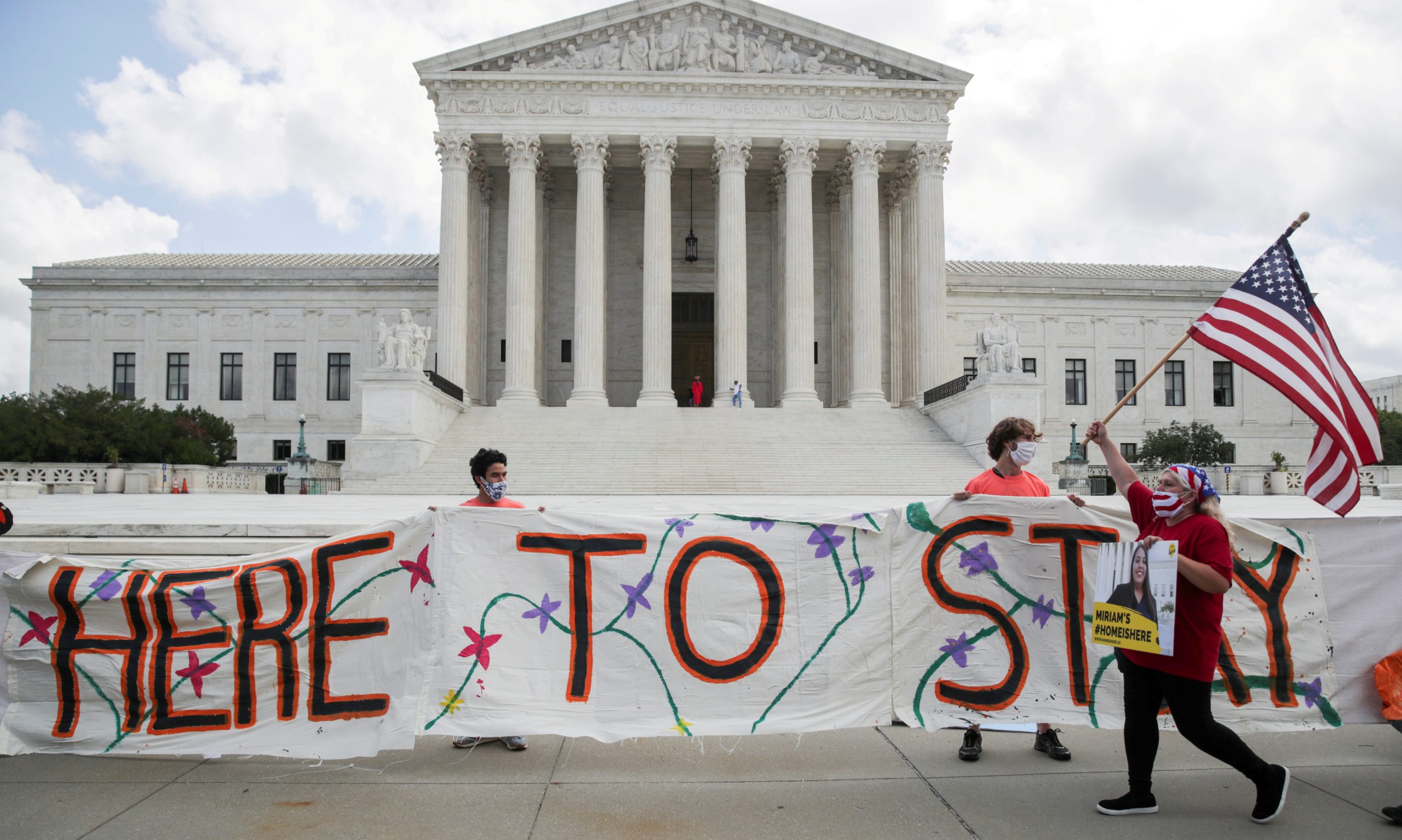A Texas-led coalition of nine states urged a federal judge on Tuesday to invalidate a program that grants hundreds of thousands of immigrants brought to the United States as children the ability to live and work in the country.
During a court hearing in Houston that lasted more than three hours, the states argued that the program, known as Deferred Action for Childhood Arrivals (DACA), was not created lawfully by former President Barack Obama in 2012.
The case could upend the lives of the nearly 650,000 people, often called “Dreamers,” who are beneficiaries of the program. DACA protects them from deportation, allows them to work, grants access to driver’s licenses, and in some cases improves access to financial aid for education.
The program has withstood a number of challenges since its creation, including a move by Republican President Donald Trump in 2017 to end it. The U.S. Supreme Court in June found that his administration’s efforts were “arbitrary and capricious” and did not follow proper procedures.
The Supreme Court, however, did not rule on the overarching legality of DACA. A decision on the challenge brought by Texas and the other states, which is being heard by U.S. District Judge Andrew Hanen, could address that question.
Hanen did not issue a ruling from the bench on Tuesday and did not set a timetable for a decision, which could come at any time.
The judge did ask lawyers what should be done for DACA recipients if, hypothetically, he found the program unlawful.
Jeremy Feigenbaum, an attorney for the state of New Jersey, which is defending DACA, argued that immediately ending the program would radically disrupt the lives of enrollees, including medical workers contributing to the coronavirus pandemic response. He said Hanen should send the policy back to the U.S. Department of Homeland Security to make any needed changes.
Earlier in the hearing, Feigenbaum also argued the case should be paused until after President-elect Joe Biden comes into office on Jan. 20 and his administration sets its own policy. The attorney pointed out that the U.S. Department of Justice, which defended Trump’s termination of the program, will change its position in only a month.
Biden, a Democrat who served as Obama’s vice president, has pledged to restore DACA and put forward legislation that would offer a path to citizenship to the estimated 11 million immigrants in the United States illegally, including DACA enrollees.
Todd Disher, an attorney representing Texas and states, said that the court was free to order a slower winding down of DACA, including by allowing current recipients to keep their status until it expired.
Disher said during the hearing that Obama’s creation of DACA violated rulemaking procedures and opened the door to broader legalization of immigrants by the executive branch.
“Why could it not do the same for every unlawfully present person in the United States?” he asked. “That is not within the executive’s power, so therefore this grant of deferred action surely must fail.”
Nina Perales, the lead attorney for DACA recipients, said the executive branch had the authority to use its own discretion to decide how to enforce immigration laws. She said DACA did not run counter to existing immigration laws, in part because it does not provide formal legal immigration status to recipients.
Hanen, who in 2015 blocked a DACA-like program for parents, challenged DACA defenders’ arguments throughout the hearing.
Underscoring the politically charged nature of the case, the judge told listeners at the outset not to be offended by the use of “illegal alien” or “illegal immigrant,” terms sometimes used by government officials but considered offensive by immigrant advocates.
(Reporting by Mimi Dwyer in Los Angeles and Ted Hesson in Washington; Editing by Bill Berkrot and Grant McCool)

























 Continue with Google
Continue with Google